When you start an antibiotic for a sinus infection, pneumonia, or even a urinary tract infection, you expect to feel better. But what if, a few days in, you start having watery diarrhea-so bad it keeps you home from work, or worse, lands you in the hospital? That’s not just a side effect. It could be Clostridioides difficile, or C. diff, a bacteria that turns your gut upside down when antibiotics wipe out the good bugs.
What Exactly Is C. diff?
Clostridioides difficile is a tough, spore-forming bacterium that lives harmlessly in the guts of some people-about 5% of healthy adults. But when antibiotics disrupt the balance of your gut microbiome, C. diff wakes up, multiplies, and starts releasing toxins. These toxins attack the lining of your colon, causing inflammation, severe diarrhea, cramps, and sometimes fever. In serious cases, it leads to pseudomembranous colitis-a dangerous condition where patches of inflammatory tissue form in the colon, and even perforation can happen.
It’s not rare. In the U.S., C. diff causes nearly half a million infections each year, making it the most common cause of bacterial diarrhea in hospitals. About 15-25% of all cases of antibiotic-associated diarrhea are due to C. diff. And it’s not just a hospital problem anymore-about 40% of cases now start in the community, even in people who haven’t been hospitalized.
How Do You Get It?
You don’t catch C. diff from sneezes or handshakes. You catch it from spores. These spores are incredibly hardy-they survive for months on doorknobs, bedrails, toilets, and even clothing. They’re resistant to regular soap, alcohol-based hand sanitizers, and most common disinfectants. You pick them up on your hands, touch your mouth, and swallow them. That’s it.
But here’s the catch: most people who swallow C. diff spores don’t get sick. Only those whose gut bacteria have been wiped out by antibiotics are at real risk. The biggest culprits? Fluoroquinolones (like ciprofloxacin), clindamycin, cephalosporins (especially third- and fourth-generation), and carbapenems. Even a single dose can be enough to trigger an infection.
Age matters too. People over 65 are eight to ten times more likely to get a severe infection-and they’re far more likely to die from it. Hospital stays increase your risk by about 1.5% per day. If you’ve had recent surgery, especially involving the gut, or if you have inflammatory bowel disease (IBD), your risk jumps even higher.
What Does It Feel Like?
The symptoms can be misleading. At first, it might feel like a mild stomach bug: loose stools, cramps, bloating. But if you’re on antibiotics and suddenly have three or more watery stools a day, it’s not normal. It’s not just "digestive upset."
Classic signs include:
- Watery diarrhea (often 10-15 times a day in severe cases)
- Lower abdominal cramping and pain
- Fever (usually above 101°F)
- Nausea and loss of appetite
- Bloody stools (in more advanced cases)
- Dehydration, rapid heart rate, and low blood pressure in severe infections
One big problem? C. diff can be asymptomatic. Up to 50% of hospitalized patients carry the bacteria without symptoms. That’s why testing only makes sense if you have symptoms. A positive test in someone with no diarrhea doesn’t mean they need treatment-it just means they’re colonized.
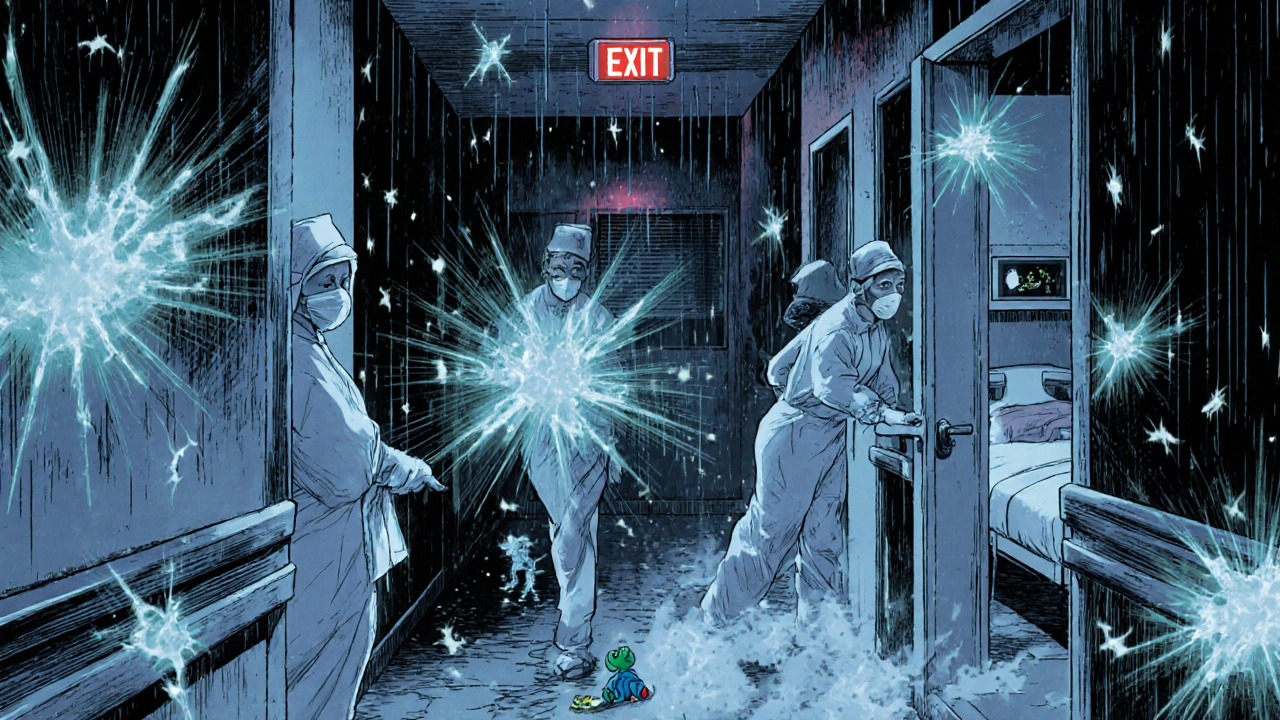
How Is It Diagnosed?
Testing isn’t straightforward. No single test is perfect. The CDC recommends a two-step process:
- First, a glutamate dehydrogenase (GDH) test to detect the presence of C. diff.
- If that’s positive, follow up with a toxin test (EIA) or a nucleic acid amplification test (NAAT) to confirm active toxin production.
Why two steps? Because NAATs are super sensitive-they’ll detect even tiny amounts of C. diff DNA, even if the bacteria aren’t making toxins. That means you could test positive but not be sick. Toxin tests are more specific but can miss cases. Combining them reduces false positives and false negatives.
Doctors also look at your clinical picture: Are you on antibiotics? How long have you had diarrhea? Are your white blood cell count and albumin levels abnormal? Severe cases are defined by a white blood cell count over 15,000, albumin under 3 g/dL, or signs of toxic megacolon on imaging.
How Is It Treated?
Treatment has changed dramatically in the last five years. What used to be standard care is now outdated-and even dangerous.
Metronidazole is no longer recommended. Studies show it’s less effective than other drugs and leads to more recurrences. It’s been removed from first-line guidelines since 2021.
Today, the gold standard is fidaxomicin. Taken as a 200 mg pill twice daily for 10 days, it’s just as good at curing the initial infection as vancomycin-but it cuts recurrence rates by nearly half. Why? It targets C. diff more precisely and spares other gut bacteria.
Vancomycin (125 mg four times a day for 10 days) is still an option, especially if fidaxomicin isn’t available or affordable. But it’s less effective at preventing the infection from coming back.
For people who’ve had multiple recurrences-2, 3, or more-the game-changer is fecal microbiota transplant (FMT). This isn’t science fiction. It’s a procedure where stool from a healthy donor is processed and delivered into the patient’s colon (via colonoscopy, capsule, or enema). It restores the gut’s natural bacteria, which then outcompete C. diff. Success rates? 85-90%. That’s far better than repeating antibiotics, which only work 40-60% of the time in recurrent cases.
In April 2023, the FDA approved the first microbiome-based drug for recurrent C. diff: SER-109. It’s a purified spore formulation made from donated stool, standardized and packaged like a pill. In clinical trials, it prevented recurrence in 88% of patients over eight weeks.
What About Probiotics?
You’ve probably heard that yogurt or probiotic supplements can prevent C. diff. It sounds logical-replace the good bacteria, right? But the science doesn’t back it up.
A 2022 Cochrane review of 39 trials involving nearly 10,000 people found no significant benefit from probiotics in preventing C. diff infection. The risk reduction was too small to matter (relative risk 0.80). Meanwhile, the American College of Gastroenterology explicitly recommends against using probiotics for C. diff prevention.
That said, probiotics may help reduce general antibiotic-associated diarrhea (not specifically C. diff). But if you’re trying to avoid C. diff, don’t rely on them.

How Can You Prevent It?
Prevention is the most powerful tool we have. And it starts with antibiotics.
Antibiotic stewardship-using antibiotics only when truly needed, choosing the right drug, and stopping them as soon as possible-is the single most effective way to reduce C. diff. Hospitals with strong stewardship programs have cut C. diff rates by 25-30%.
At home, ask your doctor: "Is this antibiotic really necessary?" Many sinus infections, ear infections, and bronchitis cases are viral and don’t need antibiotics. Pushing back can save your gut.
Hand hygiene matters-but not with alcohol gel. C. diff spores survive alcohol. Wash your hands with soap and water, especially after using the bathroom or before eating. That’s the only reliable way to remove the spores.
Environmental cleaning is critical in hospitals and nursing homes. Regular disinfectants won’t kill the spores. You need EPA-registered List K disinfectants-those containing bleach or hydrogen peroxide. Surfaces like bedrails, toilets, and call buttons must be cleaned daily with these.
Contact precautions-gowns, gloves, and private rooms for infected patients-reduce transmission by 40-50%. If you’re visiting someone with C. diff, follow the rules. Don’t touch surfaces and wash your hands thoroughly when you leave.
Why Is This Getting Worse?
One reason is the rise of hypervirulent strains, especially the NAP1/027 type. This strain produces more toxins, forms more spores, and resists some antibiotics better than older strains. It’s behind many of the outbreaks in hospitals and nursing homes since the early 2000s.
Another reason? We’re still overprescribing antibiotics. Even in outpatient settings, unnecessary prescriptions are common. And while hospital infections have dropped since 2011, community-acquired cases are rising-especially in people with IBD, recent surgery, or chronic conditions.
The economic cost is staggering: nearly $5 billion a year in the U.S. alone. And over 12,000 people die from it each year.
What’s Next?
The future of C. diff treatment is moving beyond antibiotics. SER-109 is just the beginning. Other microbiome therapies, monoclonal antibodies targeting toxins, and even vaccines are in development. But none of this matters if we keep overusing antibiotics.
For now, the best defense is simple: use antibiotics only when necessary, wash your hands with soap and water, and know the signs. If you’re on antibiotics and get diarrhea, don’t ignore it. Call your doctor. Early diagnosis saves lives.
Can C. diff go away on its own without treatment?
In mild cases, especially in younger, healthy people, C. diff can resolve on its own once the antibiotic is stopped. But this isn’t reliable. The risk of severe complications-including colitis, sepsis, or death-is too high to wait. Medical evaluation and testing are always recommended if symptoms appear during or after antibiotic use.
Is C. diff contagious?
Yes, but not through the air. C. diff spreads through spores in feces. If someone with C. diff doesn’t wash their hands after using the bathroom, they can contaminate surfaces. Others touch those surfaces and then touch their mouth. That’s how it spreads. It’s not caught from coughing or sneezing.
Can you get C. diff without taking antibiotics?
Yes. While antibiotics are the biggest risk factor, about 40% of cases now occur in people who haven’t taken antibiotics in the past 12 weeks. Other risks include hospitalization, advanced age, IBD, chemotherapy, or recent GI surgery. Even healthy people can get it if exposed to high levels of spores.
How long after antibiotics can C. diff start?
Symptoms usually begin 5 to 10 days after starting antibiotics. But they can start as early as the first day or as late as two months after finishing the course. If you develop diarrhea anytime within 8 weeks of taking antibiotics, C. diff should be considered.
Are probiotics helpful for preventing C. diff?
No. Major health organizations, including the American College of Gastroenterology and the CDC, no longer recommend probiotics for C. diff prevention. A large 2022 Cochrane review found no significant benefit. While they might reduce general antibiotic-associated diarrhea, they don’t reliably prevent C. diff infection.
What’s the difference between colonization and infection?
Colonization means C. diff is present in your gut but not causing symptoms. Infection means the bacteria are producing toxins that damage your colon, leading to diarrhea and inflammation. You can be colonized without being sick-especially in hospitals. Treatment is only needed if you have symptoms.
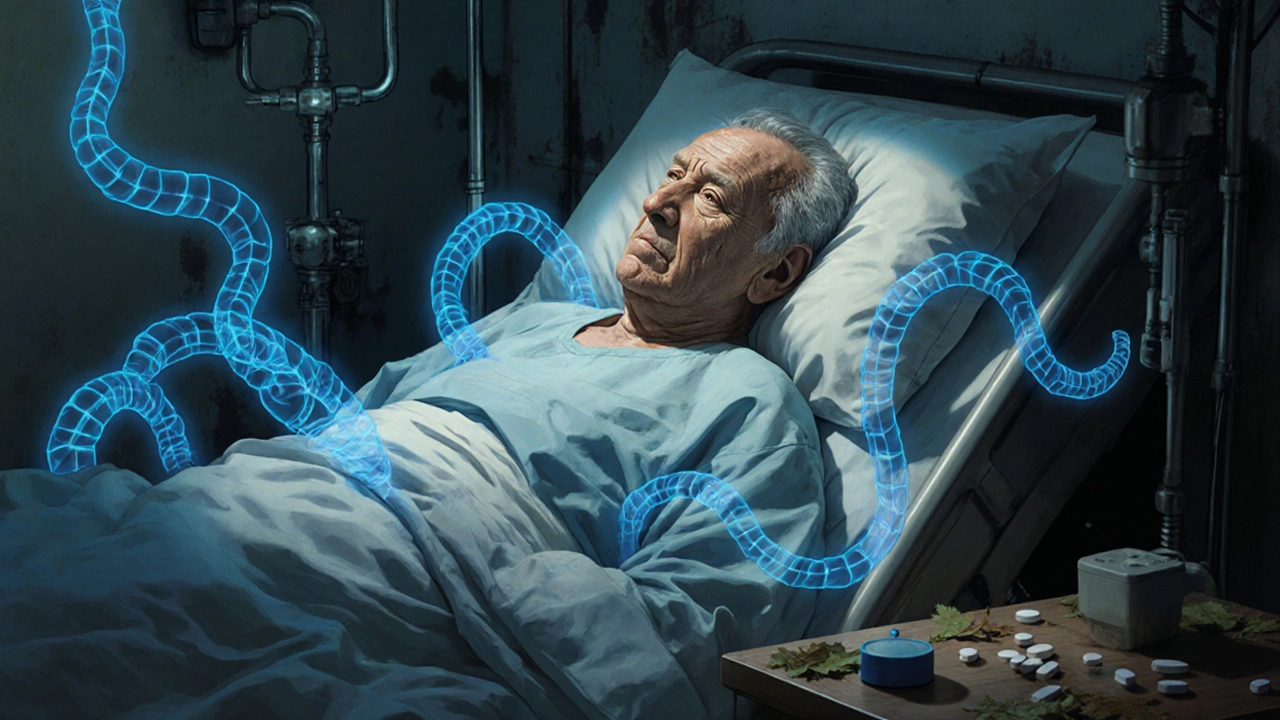
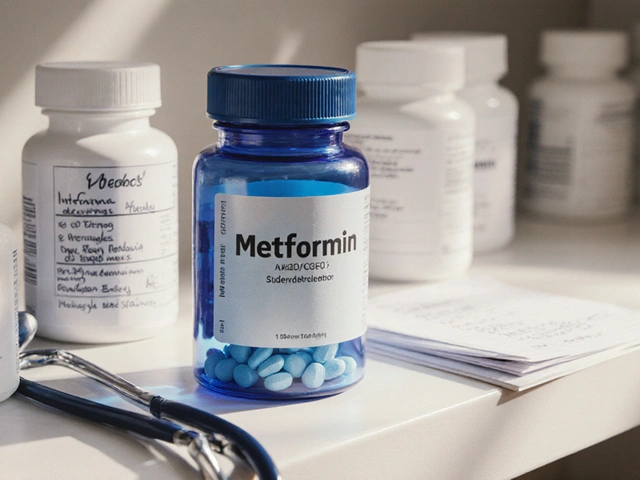
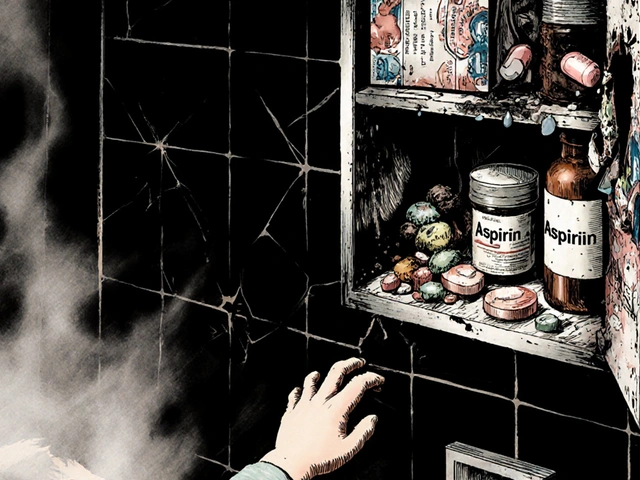

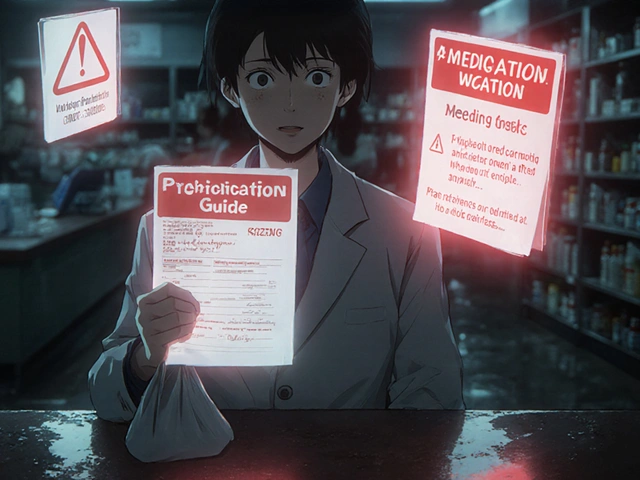

Ronald Stenger
November 18, 2025 AT 11:12Let me get this straight - we’re telling people to stop using antibiotics like they’re candy, but hospitals still let nurses wipe down beds with Lysol? That’s like locking the barn after the horse ate the whole damn hay bale. C. diff is a bioweapon disguised as a bacterium, and we’re treating it like a cold. I’ve seen patients die because some intern thought ‘it’s probably just food poisoning.’ Wake up, America. This isn’t a side effect - it’s negligence with a stethoscope.
Samkelo Bodwana
November 18, 2025 AT 15:15It’s fascinating how we’ve built entire medical protocols around fear of microbes, yet we still don’t fully grasp the complexity of the human microbiome. C. diff isn’t just a pathogen - it’s a symptom of our over-reliance on broad-spectrum chemicals to solve biological problems. We treat the gut like a sewer system that needs bleach, not a rainforest that needs balance. The fact that fecal transplants work better than antibiotics says more about our arrogance than our science. Maybe instead of killing everything, we should be listening - to the bacteria, to the body, to the ecosystem we’re part of. We’re not fighting germs. We’re fighting ourselves.
Emily Entwistle
November 19, 2025 AT 22:02YESSSS this is so important!! 🙌 I had C. diff after a stupid sinus antibiotic - thought I was just ‘getting over a bug’ until I was on the floor crying from cramps 😭 Don’t ignore diarrhea on antibiotics!! Call your doc, don’t ‘wait it out’ - your colon will thank you later 💪❤️ Also, soap and water > hand sanitizer, period. I now keep a little bottle of liquid soap in my purse. Small habit, huge difference. #CdiffAwareness
Duncan Prowel
November 21, 2025 AT 06:27While the clinical guidelines presented are largely accurate and evidence-based, one must consider the logistical and socioeconomic constraints that impede their universal implementation. Fidaxomicin, for instance, remains prohibitively expensive in many healthcare systems, and fecal microbiota transplantation, while efficacious, requires stringent donor screening, regulatory oversight, and infrastructure that is not universally accessible. The assertion that probiotics offer no benefit is statistically sound, yet anecdotal evidence from primary care settings suggests potential utility in select populations. Further research into cost-effective, scalable interventions is not merely advisable - it is imperative.
Jonathan Gabriel
November 23, 2025 AT 01:04So let me get this straight - we spent 20 years telling people to wash their hands with gel, then suddenly we’re like ‘lol jk it’s soap now’? 🤦♂️ And now we’re selling poop pills like they’re at a Whole Foods smoothie bar? SER-109? Sounds like a rejected Marvel villain. But hey, at least we finally admit antibiotics are overkill. Took long enough. Also, if you’re 65 and on antibiotics and get diarrhea? Don’t wait. Your colon doesn’t have time for your ‘maybe it’s just stress’ vibe. Just call your doctor. Or don’t. I’m not your mom. But I’ve seen the ER reports. You don’t wanna be the 12,000.
Don Angel
November 23, 2025 AT 09:37Wow. Just… wow. I didn’t know C. diff was this serious. I always thought it was just a ‘hospital thing.’ Now I’m scared to even take a Z-Pack. 🙈 Also, soap and water? I always use sanitizer. I’m gonna start carrying soap. And I’m definitely asking my doctor next time they hand me an antibiotic like it’s gum. Thank you for this. Really. This could’ve saved my grandma.
benedict nwokedi
November 24, 2025 AT 02:17Who funded this article? Big Pharma? Because they’re the ones pushing fidaxomicin and SER-109 - expensive, patented, corporate ‘solutions’ that replace cheap, old-school vancomycin. And let’s not forget: fecal transplants? That’s just a fancy way of saying ‘we’re shoving poop into people’ - and the FDA approved it? Meanwhile, the real cause? Glyphosate in our food. It’s killing our microbiomes. C. diff is a symptom of the poisoned food supply. But nope - we’ll just give you a $10,000 pill instead of fixing the system. Wake up, sheeple. The gut is the first line of defense - and they’re poisoning it. On purpose.
deepak kumar
November 25, 2025 AT 20:43In India, we used to rely on yogurt and buttermilk after antibiotics - not because we read a Cochrane review, but because our grandmothers knew the body needs balance. The science is catching up, but the wisdom was always there. I’ve seen patients recover faster with probiotics + diet + rest, even if the guidelines say ‘no.’ Maybe the problem isn’t probiotics - it’s that we’ve turned them into pills instead of food. Eat idli, dosa, fermented vegetables. Your gut will thank you. And yes - wash hands with soap. No excuse. Not even in the village.
Dave Pritchard
November 26, 2025 AT 22:27This is the kind of post that saves lives. Seriously. I work in a clinic and I’ve seen too many people dismiss diarrhea as ‘just a side effect.’ I now hand out a printed one-pager on C. diff signs to anyone getting antibiotics. Simple. Clear. No jargon. And I always say: ‘If you’re on antibiotics and you’re pooping like a water fountain - don’t wait. Call us.’ You don’t need to be a doctor to recognize this. You just need to care. Thank you for making this so accessible.
kim pu
November 28, 2025 AT 02:28Okay but… what if C. diff is just the government’s way of controlling the population? I mean, why is it so common in hospitals? Why are the ‘spores’ so damn resilient? And why is the cure a poop pill? Sounds like a bio-engineered bioweapon to me. Also, who even tests the donors? What if they’re secretly part of the Illuminati? And why did they ban metronidazole? Because it’s too cheap? Because it doesn’t make enough money? I’m not buying this ‘antibiotic stewardship’ crap. They want us dependent on $10K pills. And hand sanitizer? That’s just a distraction. They want you to think you’re clean while the real toxins are in your food, your water, your Wi-Fi. Wake up.